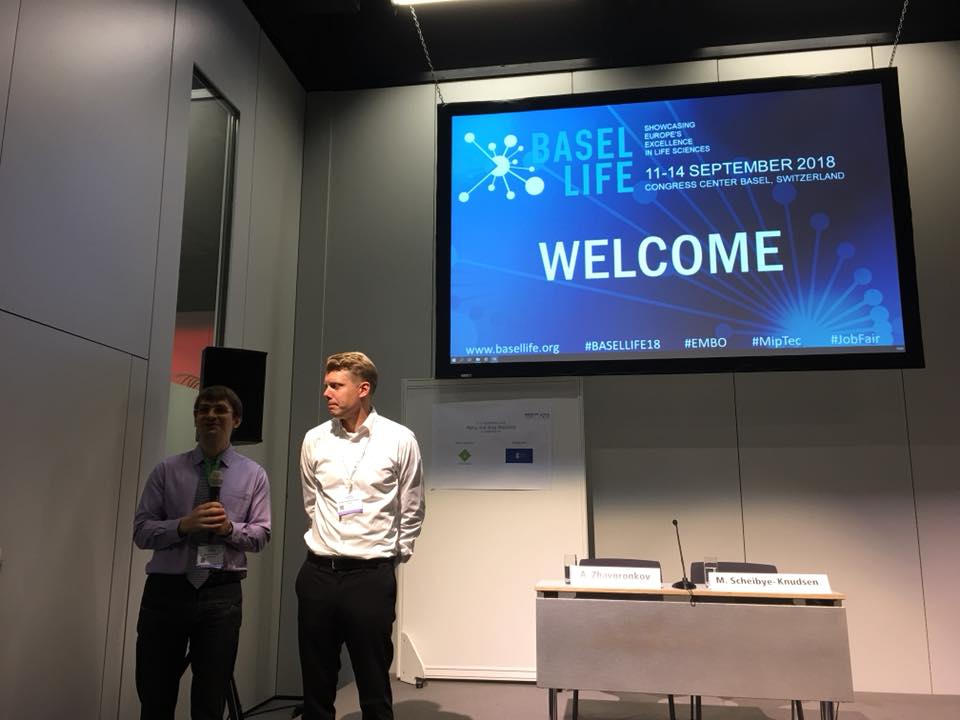Page 9839
Sep 12, 2018
Why it’s so hard to reach an international agreement on killer robots
Posted by Bill Kemp in category: robotics/AI
For several years, civil society groups have been calling for a ban on what they call “killer robots”. Scores of technologists have lent their voice to the cause. Some two dozen governments now support a ban and several others would like to see some kind of international regulation.
Yet the latest talks on “lethal autonomous weapons systems” wrapped up last month with no agreement on a ban. The Group of Governmental Experts meeting, convened in Geneva under the auspices of the United Nations Convention on Certain Conventional Weapons, did not even clearly proceed towards one. The outcome was a decision to continue discussions next year.
Those supporting a ban are not impressed. But the reasons for the failure to reach agreement on the way forward are complex.
Continue reading “Why it’s so hard to reach an international agreement on killer robots” »
Sep 12, 2018
Digital government isn’t working in the developing world: Here’s why
Posted by Bill Kemp in categories: biotech/medical, employment, government
The digital transformation of society has brought many immediate benefits: it’s created new jobs and services, boosted efficiency and promoted innovation. But when it comes to improving the way we govern, the story is not that simple.
It seems reasonable to imagine introducing digital information and communication technologies into public sector organisations – known as “digital government” or “e-government” – would have a beneficial impact on the way public services are delivered. For instance, by enabling people to claim rebates for medical bills via a government website.
When implemented well, e-government can reduce the cost of delivering government and public services, and ensure better contact with citizens – especially in remote or less densely populated areas. It can also contribute to greater transparency and accountability in public decisions, stimulate the emergence of local e-cultures, and strengthen democracy.
Sep 12, 2018
Prompting people to listen to each other reduces inequality and improves group performance
Posted by Bill Kemp in category: futurism
A small but impactful shift in the way a group assignment is presented can significantly reduce racial inequality within the group, as well as lead to better work, according to new research by Bianca Manago, assistant professor of sociology at Vanderbilt University. Groups, Inequality and Synergy, co-authored with Jane Sell at Texas A&M University and Carla Goar at Kent State University, appears online in the September 2018 issue of Social Forces.
Previous research has shown that groups often diminish the contributions of minorities, by dismissing their opinions more often, for example, or by being less likely to adopt their ideas. Manago and her colleagues sought to discover whether reframing the parameters of a group task could reduce that inequality, and how that would impact the quality of the group’s work.
“Past research shows that people with different skills working together is good for group performance, but relatively little research has been done on how superficial differences that shouldn’t matter, like race, affect group performance,” Manago said. “We found that when people are more willing to listen to the minority group member, the group does better.”
Sep 12, 2018
New high-capacity sodium-ion could replace lithium in rechargeable batteries
Posted by Bill Kemp in categories: computing, mobile phones, sustainability, transportation
University of Birmingham scientists are paving the way to swap the lithium in lithium-ion batteries with sodium, according to research published in the Journal of the American Chemical Society.
Lithium-ion batteries (LIB) are rechargeable and are widely used in laptops, mobile phones and in hybrid and fully electric vehicles. The electric vehicle is a crucial technology for fighting pollution in cities and realising an era of clean sustainable transport.
However lithium is expensive and resources are unevenly distributed across the planet. Large amounts of drinking water are used in lithium extraction and extraction techniques are becoming more energy intensive as lithium demand rises – an ‘own goal’ in terms of sustainability.
Continue reading “New high-capacity sodium-ion could replace lithium in rechargeable batteries” »
Sep 12, 2018
European science funders ban grantees from publishing in paywalled journals
Posted by Derick Lee in categories: business, physics, science
The move means grantees from these 11 funders—which include the national funding agencies in the United Kingdom, the Netherlands, and France as well as Italy’s National Institute for Nuclear Physics—will have to forgo publishing in thousands of journals, including high-profile ones such as Nature, Science, Cell, and The Lancet, unless those journals change their business model. “We think this could create a tipping point,” says Marc Schiltz, president of Science Europe, the Brussels-based association of science organizations that helped coordinate the plan. “Really the idea was to make a big, decisive step—not to come up with another statement or an expression of intent.”
Bold move is intended to trigger open-access tipping point.
Lord Dunsany & The Power of Myth ~zsarg https://youtu.be/WumW5gIw9xs #zerostate #transhuman #posthuman #singularity # #metaverse
Sep 12, 2018
Life Extension Beyond Borders… — Life Extension Beyond Borders Association
Posted by Lilia Lens-Pechakova in categories: biotech/medical, life extension, robotics/AI
Here in beautiful Basel, Switzerland we open the section Aging and Drug Discovery, actually an intersection of AI, longevity and drug discovery in the Innovation Forums of Basel Life Conference 2018. Dr Alex Zhavoronkov (InSilico Medicine) and Dr Morten Scheibye-Knudsen (University Copenhagen) welcomed us. Dr Jay Olshansky (University of Illinois at Chicago) gave the first lecture. Some examples for age face recognition were shown, emphasising the importance of wrinkles from smoking or others and suggesting that looking younger means living longer! After the wonderful lecture I immediately went to correct my make-up!
Sep 11, 2018
The Pentagon’s Tiny Covert Mics That Clip Onto Your Teeth Are A Game Changer
Posted by Klaus Baldauf in category: military
Hidden inside your mouth, the device sends radio messages vibrating through the bones in your head straight into your inner ear.
Sep 11, 2018
How to Watch Apple’s ‘Gather Round’ iPhone Event Live in Your Time Zone
Posted by Mary Jain in categories: electronics, mobile phones
There’s just a day to go until Apple holds its annual iPhone-centric event to introduce new iPhone models, with this year’s event expected to see the debut of the 5.8-inch OLED iPhone Xs, the 6.5-inch OLED iPhone Xs Max, and the 6.1-inch LCD iPhone, which could be called the iPhone Xr.
We’re also expecting to see new Apple Watch Series 4 models with larger displays thanks to reduced bezels and more accurate ECG-based heart monitoring technology. Other surprises could be in the works too, such as the launch of new second-generation AirPods and the debut of the long-awaited AirPower.

Continue reading “How to Watch Apple’s ‘Gather Round’ iPhone Event Live in Your Time Zone” »

















